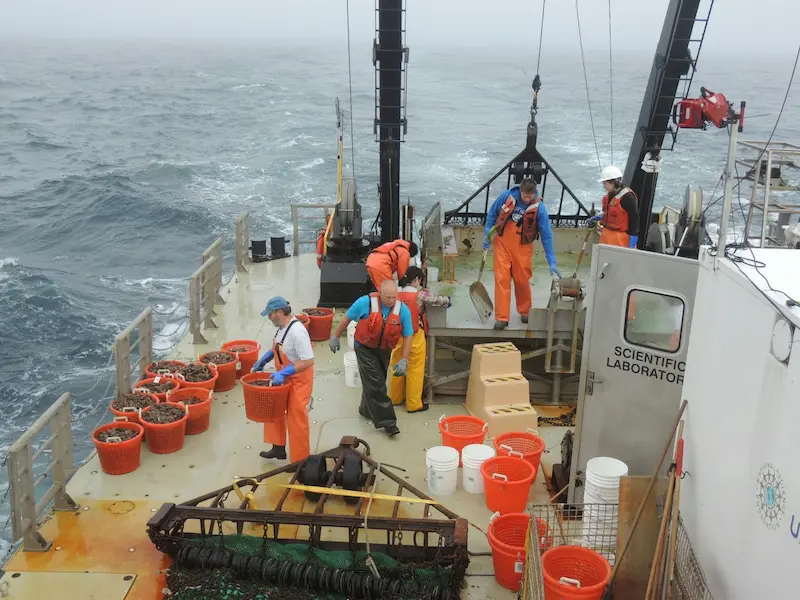Table of Contents
Marine operations, whether commercial shipping, offshore drilling, or search and rescue missions, are complex endeavors that demand efficiency, safety, and reliability. The harsh conditions of the sea and the unpredictable weather make it crucial to have equipment that can withstand these challenges. This is where advanced equipment solutions come into play. From navigation systems to buoyancy control, these technologies not only streamline operations but also ensure the safety of both personnel and marine ecosystems. Here’s a closer look at why marine operations depend heavily on advanced equipment solutions.
Enhancing Operational Efficiency
In marine operations, efficiency is key to maximizing productivity and minimizing downtime. Advanced equipment solutions help to automate many tasks that were previously labor-intensive. For example, modern navigation systems use satellite data and real-time weather updates to plot optimal routes, reducing fuel consumption and travel time.
Additionally, automated systems for cargo handling, fuel management, and even maintenance scheduling help marine operators to stay on top of their tasks. This increase in efficiency translates to cost savings, fewer errors, and better use of resources. As marine operations often work under tight deadlines, having technology that enhances efficiency is a game-changer for success in this industry.
Ensuring Safety and Reducing Risks
Safety is a top priority in marine operations, where accidents can lead to catastrophic consequences. Advanced equipment solutions have made significant strides in reducing risks, particularly in dangerous environments like offshore drilling platforms or when navigating through stormy waters.
One key advancement is the use of real-time monitoring systems. These systems allow operators to keep track of weather conditions, equipment status, and even the health of crew members. In case of an emergency, advanced communication tools enable quick coordination with rescue teams, helping to mitigate damage and ensure a swift response.
Moreover, equipment like stabilizers and advanced hull designs help vessels stay steady in rough waters, reducing the risk of capsizing or accidents during critical operations. By reducing human error and providing more precise control, these technologies make marine operations significantly safer.
Maintaining Equipment Durability in Harsh Conditions
The marine environment is notoriously tough on equipment. Exposure to saltwater, high winds, and varying temperatures can lead to rapid deterioration of materials, causing frequent breakdowns if not properly addressed. Advanced equipment solutions are designed to be highly durable, with materials that resist corrosion, and engineering that ensures longevity even in the harshest conditions.
The integration of durable equipment such as floating platforms, remotely operated vehicles, and autonomous systems streamline various aspects of marine work. Floating systems and modular platforms offered at https://ezconnectfloats.com/ and other float suppliers are designed with durability in mind, offering reliable buoyancy and resistance to the elements. Such innovations ensure that marine equipment continues to function optimally despite constant exposure to rough conditions. This minimizes downtime due to repairs and replacements, ensuring continuous operations.
Environmental Protection and Compliance
Marine operations are subject to strict environmental regulations aimed at protecting ocean ecosystems. Oil spills, pollution, and damage to marine life are major concerns that need to be addressed. Advanced equipment solutions help companies meet these environmental standards while still operating efficiently.
For instance, oil spill containment systems, eco-friendly propulsion systems, and waste management technology all play crucial roles in ensuring that marine operations have minimal environmental impact. Equipment solutions that include cleaner engines, emission reduction technologies, and real-time environmental monitoring systems help reduce pollution and keep marine ecosystems intact.
By adopting these advanced solutions, marine operators not only comply with regulations but also contribute to the global effort of preserving our oceans for future generations.
Precision in Deep-Sea Exploration and Operations
Deep-sea exploration and offshore drilling require precision that can only be achieved through advanced technology. ROVs (Remotely Operated Vehicles), advanced sonar systems, and specialized equipment for deep-sea operations allow marine operators to perform tasks at extreme depths with a high degree of accuracy.
Whether it’s collecting samples for scientific research, installing underwater infrastructure, or inspecting submerged pipelines, these advanced tools enable tasks that would be impossible using traditional equipment. For example, underwater drones can provide real-time video feeds and perform inspections in areas that are too dangerous for human divers. This level of precision is critical in ensuring that deep-sea operations are both efficient and safe.
Facilitating Communication and Coordination

Effective communication is essential in marine operations, where teams are often spread across vast distances. Advanced communication equipment ensures that operators can stay in contact with vessels, platforms, and land-based control centers in real time. This is particularly important in large-scale operations like offshore oil rigs or naval exercises, where coordination between multiple parties is necessary for smooth execution.
Satellite communication systems, long-range radios, and automated alert systems ensure that teams are always connected, even in remote areas. This improved communication enhances the ability to respond quickly to changing conditions, avoid hazards, and coordinate complex maneuvers, all of which are crucial in marine operations.
Reducing Operational Costs
Investing in advanced equipment may seem expensive initially, but it can significantly reduce operational costs in the long run. Modern equipment solutions are designed to be energy-efficient, reducing fuel consumption and maintenance costs. Automated systems also minimize the need for a large workforce, further cutting down on expenses.
In addition, advanced diagnostic tools can predict equipment failures before they occur, allowing operators to perform preventive maintenance instead of expensive emergency repairs. By extending the lifespan of equipment and reducing the need for frequent replacements, these solutions help marine operators save money while maintaining high levels of operational efficiency.
The role of advanced equipment solutions in marine operations cannot be overstated. From improving safety and efficiency to reducing environmental impact and operational costs, modern technology is essential for navigating the challenges of the marine environment. By adopting these innovative solutions, marine operators can ensure that their operations are not only successful but also sustainable in the long term.
Want to explore something different? What Makes Food Gifts the Perfect Choice for Employee Appreciation

